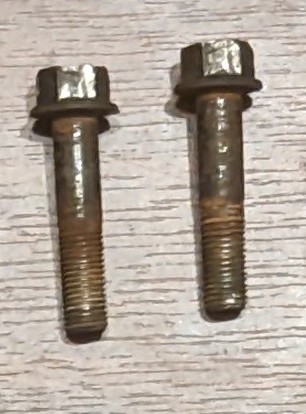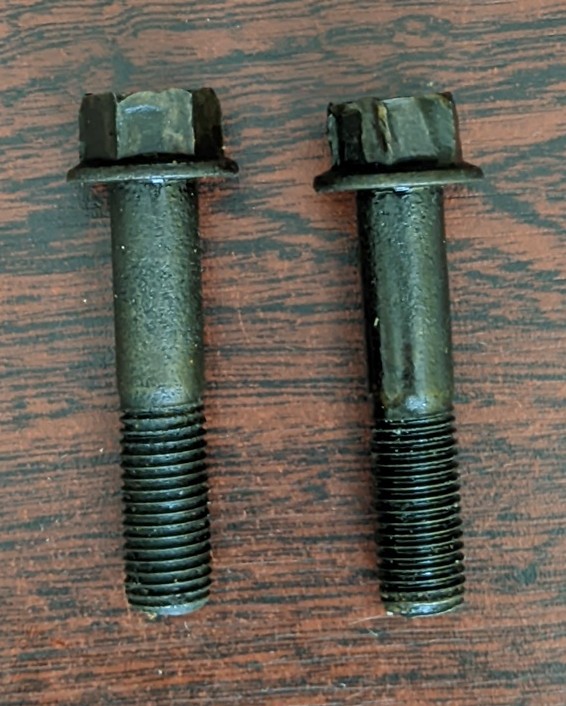So, since I am living in a country with lots of anow and salt, rust has always been an issue for me. I started researching how to rustproof the bolts, because there is nothing worse than a rust-welded grade 10.9 bolt that had its head snapped lol.
All steel bolt rust proofing methods I’ve seen are based on creating a layer between the steel and oxygen. But the way the layer is made varies wildly:
- Oxide based coat
- Carbon based coat
- Metal based coat
- Oil based coat
- Paint based coat
For example there is a technique that is called “Oil Burn” where you get the bolt red hot and dip it into motor oil. There are various issues with this technique, which I will explain in a later post.
With your suggestions I will make a spreadsheet with various pros and cons listed and will share with the community.
As to prove I am serious about this, here are my current experiments:
Before:

After:

.
My father in law showed me that a bit of copper paste applied to the threading of the bolts everytime you change the wheels keeps most of the rust out. We change 2x a year. Never had rust locked bolt since I use this method.
Yes, it’s an effective anti-seize method. There are multiple cons with it due to it being somewhat messy to apply and needing to reapply it after unbolting. Also it protects the threads from rust/seize but not the head
Yeah you are correct it isn’t a longtime solution but a quick fix and only protects the threading. But I never had a head rust to unusability. A small brush to apply keeps the mess very controllable.
It’s not that it becomes unusable, but greatly increases the chances of it being rounded off or making the fitment of the tool difficult, requiring quite a bit of cleaning with a brush

